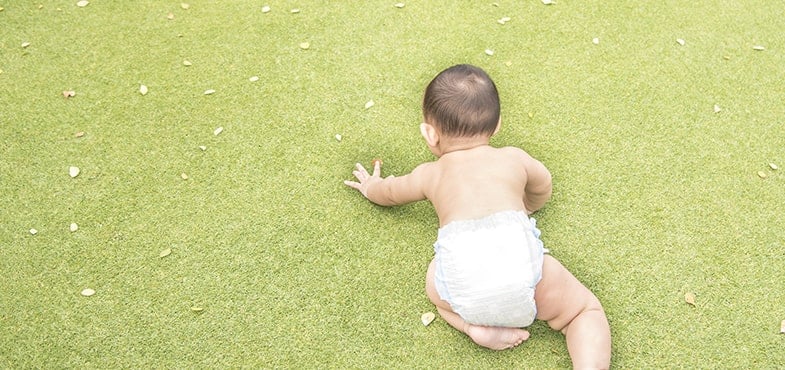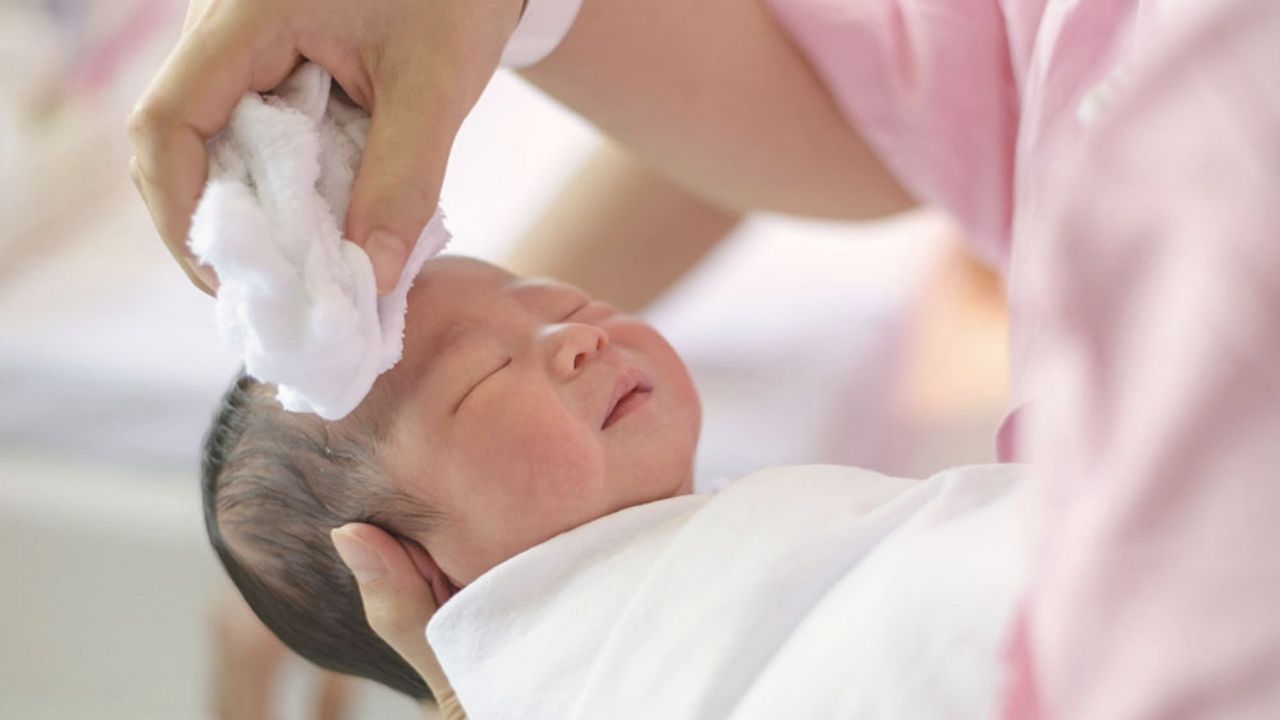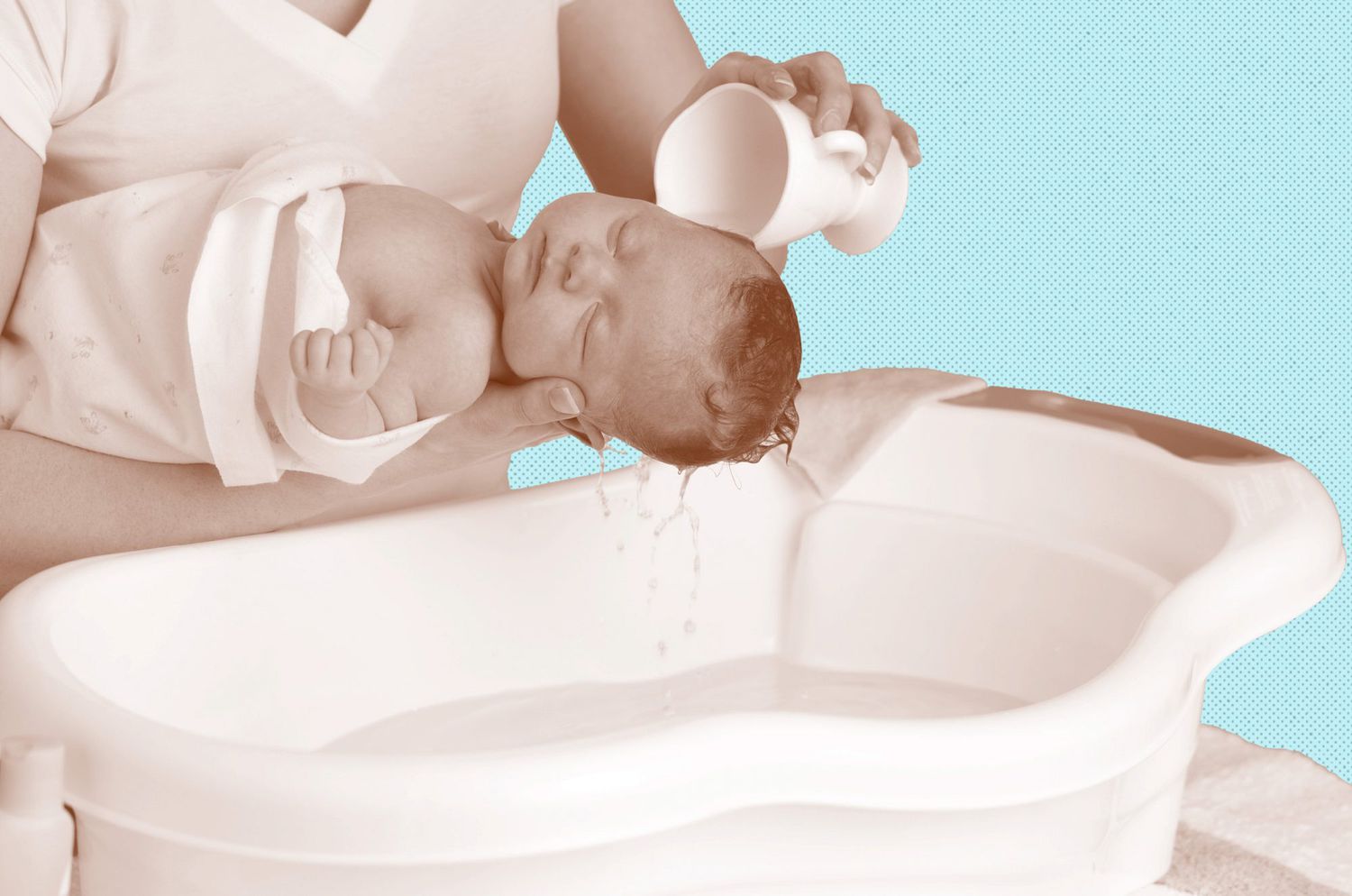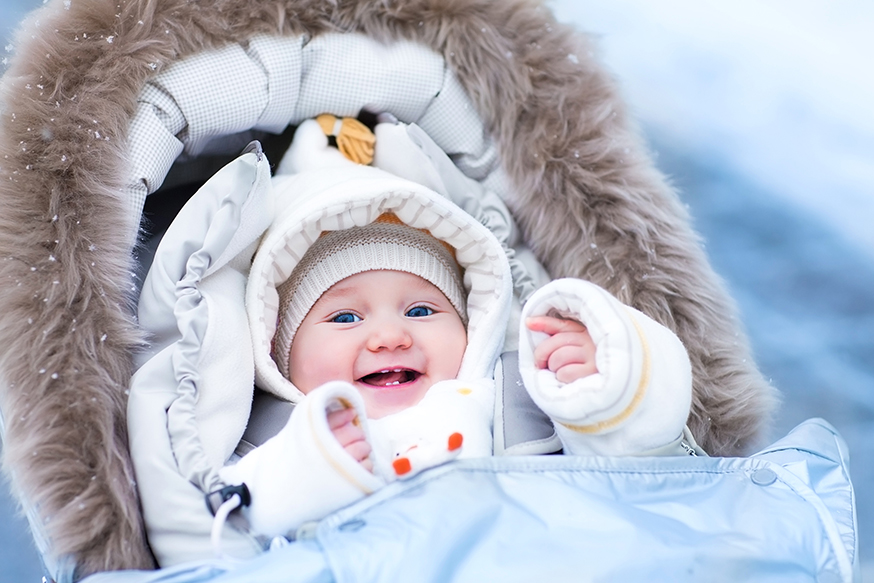What Should Winter Care for Infants Include?
To care for infants in winter, dress them in layers, guarantee hydration, and maintain a cozy room temperature. Emphasize safe sleep practices, protect their skin with gentle products, and prioritize outdoor safety with appropriate clothing. Follow bathing and diapering tips, focus on nutrition, and aim to boost immunity. Remember, these practices create a nurturing environment for your little one during the colder months.
Key Takeaways
- Dress in layers for warmth and comfort.
- Maintain hydration and moisturize regularly.
- Ensure proper room temperature and safe sleep environment.
- Monitor humidity levels for comfort and skin protection.
- Practice outdoor safety measures and skin protection strategies.
Dressing for Cold Weather

When preparing your infant for cold weather, layering their clothing is essential to keep them warm and cozy. Start with a soft, moisture-wicking base layer to keep them dry.
Choose winter accessories like hats, mittens, and booties that are snug but not too tight to allow proper circulation. Layering techniques are vital for maintaining warmth.
Add a middle layer of fleece or wool for insulation, and finish with a waterproof and windproof outer layer to protect against the elements.
For best warmth, make sure that each layer fits comfortably without being too loose or restrictive. Remember that infants lose heat more quickly than adults, so it’s important to bundle them up appropriately.
Avoid overdressing to prevent overheating, which can be just as dangerous as being too cold. Check your baby’s temperature by feeling their neck or chest to ensure they aren’t too hot or too cold.
Hydration and Moisturization
Maintaining proper hydration and moisturization is essential for keeping your infant’s skin healthy and protected during the winter months. Winter can lead to dryness, making it vital to pay extra attention to your baby’s skin.
To guarantee adequate winter hydration, consider increasing the frequency of breastfeeding or bottle-feeding to prevent dehydration. Additionally, offer small amounts of water if your baby is over six months old, as this can help combat the dry indoor air common during the winter.
When it comes to infant moisturization, here are some tips to keep in mind. Opt for gentle, fragrance-free moisturizers specifically designed for babies to prevent irritation. Apply moisturizer immediately after bathing to lock in moisture. Be mindful of the ingredients in the products you use to avoid any potential allergens that may exacerbate dryness.
Remember to dress your baby in breathable fabrics to prevent overheating, which can also contribute to skin dryness. By prioritizing hydration and moisturization, you can help protect your infant’s delicate skin from the harsh effects of winter.
Proper Room Temperature

Guarantee your infant’s safety by maintaining a comfortable room temperature for sleep.
Keep an eye on humidity levels to prevent dry air from causing discomfort.
Dress your baby in layers to easily adjust to changing room conditions.
Safe Sleep Environment
Keep your infant’s sleep environment safe by maintaining a proper room temperature conducive to restful sleep. Guarantee your baby sleeps on their back to reduce the risk of Sudden Infant Death Syndrome (SIDS).
Use a firm mattress with a fitted sheet and avoid loose bedding, pillows, or toys in the crib to prevent suffocation hazards.
If you choose to co-sleep, make sure the adult bed is safe by removing soft bedding, ensuring there are no gaps where the baby could get trapped, and avoiding pillows near the baby.
Additionally, confirm the crib meets safety standards and has no missing or broken parts to prevent any potential harm to your baby during sleep.
Monitor Humidity Levels
To create a comfortable and safe sleep environment for your infant, it’s important to monitor humidity levels in the room to ensure proper room temperature regulation. Humidity control plays a vital role in maintaining a healthy atmosphere for your baby. Low humidity levels can lead to dry skin, increasing the risk of irritation and discomfort.
By ensuring adequate moisture in the air, you can protect your infant’s delicate skin and promote overall skin health.
Proper moisturization is key during the winter months when indoor air tends to be drier. Maintaining ideal humidity levels not only helps in skin protection but also supports respiratory health. Dry air can irritate the respiratory system, potentially leading to issues such as coughing and congestion.
Dress in Layers
How can you guarantee your infant stays cozy and comfortable in the winter months while maintaining proper room temperature? Dressing your little one in layers is a simple yet effective way to ensure their warmth and well-being. Layering benefits your baby by providing flexibility in adjusting their clothing to match indoor and outdoor temperatures. It also allows for better temperature regulation and insulation, keeping your infant comfortable throughout the day.
When dressing your baby in layers, start with a soft, breathable base layer like cotton to help wick away moisture and regulate body temperature. Add a middle layer for insulation, such as a cozy sweater or fleece jacket. Finish off with a top layer that’s waterproof and windproof to protect against the elements when going outside.
Remember to check your baby’s neck, back, or belly to ensure they aren’t overheating or feeling too cold.
Outdoor Safety Measures

Regularly checking the weather forecast before heading outdoors with your infant is crucial for guaranteeing their safety and comfort during the winter season.
When going out with your little one, make sure that the stroller is equipped for winter conditions. Opt for strollers with larger, air-filled tires that provide better traction on snow and ice. Additionally, follow outdoor playtime guidelines to prevent overexposure to cold temperatures.
When dressing your infant for outdoor adventures, consider using a snowsuit that’s warm and water-resistant to protect them from the cold. Remember to layer their clothing to trap heat effectively. As for diapering in cold weather, choose diapers that are suitable for lower temperatures to keep your baby dry and comfortable.
Always be mindful of winter stroller safety measures, such as properly securing your child in the stroller and using the provided safety straps.
Skin Protection Strategies

To protect your baby’s delicate skin during winter, remember to moisturize regularly with gentle lotions or creams.
Dressing your infant in layers can help regulate body temperature and prevent irritation.
Be mindful of avoiding harsh chemicals in skincare products to maintain your baby’s skin health during the colder months.
Moisturizing Delicate Baby Skin
Ensuring your baby’s delicate skin remains hydrated and protected during the winter months is essential for maintaining its health and comfort. In cold weather, baby skincare requires special attention to prevent dryness and discomfort. Utilizing gentle massage techniques with a baby-safe moisturizer can help lock in moisture and improve circulation, promoting healthier skin.
When dressing your infant in winter clothing, opt for soft, breathable fabrics that won’t irritate their skin.
When it comes to moisturizing your baby’s skin, choose a fragrance-free and hypoallergenic lotion or cream specifically formulated for infants. Apply the moisturizer generously after bath time and whenever the skin feels dry. Pay extra attention to areas prone to dryness, such as elbows, knees, and cheeks.
Regular moisturization, along with proper clothing choices, can create a protective barrier against harsh winter conditions, keeping your baby’s skin soft, smooth, and well-nourished throughout the season.
Dressing in Layers
A key strategy for protecting your infant’s delicate skin during the winter months is to dress them in multiple layers of soft, breathable fabrics.
When it comes to dressing your little one for the cold season, remember the basics of layering. Start with a moisture-wicking base layer to keep their skin dry, add a cozy middle layer for insulation, and finish with a waterproof outer layer to shield against snow or rain.
In addition to layering basics, don’t forget about winter accessories to keep your baby snug and warm. Consider hats that cover their ears, mittens to protect their tiny hands, and booties to keep their feet toasty.
These extra touches can make a significant difference in keeping your infant comfortable and protected from the harsh winter elements.
Avoiding Harsh Chemicals
Consider selecting skincare products labeled as ‘fragrance-free‘ or ‘hypoallergenic‘ to minimize exposure to harsh chemicals that could irritate your infant’s sensitive skin during the winter months. Opting for gentle skincare options is key to protecting your little one’s delicate skin.
When choosing products, look for natural alternatives and non-toxic options to provide the best care for your baby.
Harsh chemicals can strip the skin of its natural oils, leading to dryness and irritation, especially in the cold winter weather. By opting for organic options, you can avoid exposing your infant’s skin to potentially harmful substances.
These products are formulated with ingredients that are gentle and nourishing, promoting healthy skin without the risk of irritation.
Handling Common Illnesses

Identifying common illnesses in infants during the winter months is essential for prompt treatment and recovery. While colds, flu, and stomach bugs are prevalent during this season, there are ways to manage these conditions effectively.
For mild symptoms, home remedies like ensuring proper hydration and using a humidifier can help ease discomfort. However, if symptoms persist or worsen, seeking medical intervention is important to prevent any complications.
Herbal remedies such as chamomile tea for soothing a sore throat or ginger for digestive issues can sometimes provide relief, but it’s important to consult with a healthcare provider before trying any herbal treatments.
Additionally, staying up to date with your infant’s vaccination schedule is crucial in preventing serious illnesses like flu or pneumonia.
Winter Sleep Practices
As winter approaches, ensuring your infant’s sleep environment is vital – remember to place your baby on their back to sleep and avoid loose bedding.
Dressing your little one appropriately for bed is also important; opt for layers to keep them warm without overheating.
These simple practices can help promote a safe and comfortable sleep environment for your baby during the colder months.
Safe Sleep Environment
Creating a cozy and safe sleep environment for your infant during the winter months is essential for their comfort and well-being. When it comes to sleep positioning, always remember to place your baby on their back to reduce the risk of Sudden Infant Death Syndrome (SIDS).
Additionally, guarantee your baby is dressed in appropriate sleepwear to keep them warm without overheating. Crib safety is paramount in the winter months. Make sure the crib mattress fits snugly with no gaps where your baby could get stuck.
Avoid using loose bedding, such as blankets and pillows, as they can pose suffocation hazards. Opt for a fitted sheet and a sleep sack or wearable blanket to keep your baby warm and safe.
Dressing for Bed
When preparing your infant for bed during the winter months, ensuring they’re dressed appropriately is vital to keeping them warm and comfortable throughout the night. As part of your bedtime routine, choosing the right pajamas is important. Opt for soft, breathable fabrics like cotton or fleece that provide warmth without overheating. Avoid materials that may irritate your baby’s delicate skin.
Consider a sleep sack as an alternative to blankets, as it keeps your little one cozy without the risk of covering their face during sleep.
During winter nights, it’s crucial to strike a balance between warmth and safety. Dressing your baby in layers allows you to adjust their clothing as needed without overheating. Before bedtime, check the room temperature and ensure your infant is comfortably dressed for the environment. By incorporating proper pajama selection and considering fabric choices like cotton or fleece, you can help your baby have a restful and warm night’s sleep during the winter season.
Bathing and Diapering Tips

During the winter months, ensuring proper bathing and diapering practices are essential for keeping your infant healthy and comfortable.
When it comes to bathing techniques, opt for lukewarm baths instead of hot water to prevent drying out your baby’s delicate skin. Use gentle, fragrance-free baby soap and shampoo to avoid irritation. Pat your baby’s skin dry gently with a soft towel and follow up with a moisturizing cream to maintain their skin’s hydration.
For diapering tips, be sure to change diapers frequently to prevent diaper rash. Use a gentle baby wipe or simply clean your baby’s bottom with warm water and a soft cloth during each change. Allow your baby’s skin to air dry before putting on a fresh diaper.
To aid in diaper rash prevention, apply a thin layer of diaper cream with each diaper change to act as a barrier against moisture and irritants.
Nutrition and Feeding Considerations
Maintaining a consistent feeding schedule is vital during this time to provide your baby with the necessary nutrients to stay healthy. Consider making dietary adjustments to include more warming and nutrient-rich foods to help boost their immunity.
If you’re breastfeeding, continue to do so as it offers numerous benefits, including providing antibodies that can help protect your baby from winter illnesses.
If formula feeding is preferred or necessary, there are various formula options available to make sure your infant receives adequate nutrition. It’s important to consult with your pediatrician to determine the best formula choice based on your baby’s needs.
Remember to pay attention to your baby’s cues for hunger and fullness, as they may vary during the winter months. By being attentive to their feeding patterns and ensuring they receive proper nutrition, you can help support their overall health and well-being throughout the season.
Building Immunity Through Care
To support your infant’s health during the winter season, focus on strengthening their immunity through careful and consistent care practices. A vital immune system is essential in helping your baby fight off common winter illnesses. Guarantee your infant receives adequate nutrition, plenty of rest, and stays hydrated to support their immune system. Dress your baby appropriately for the weather to prevent them from getting sick. Engage in gentle winter activities such as short walks in the fresh air to help boost their immunity.
Maintaining a clean environment is imperative to avoid the spread of germs that can compromise your baby’s immune system. Regularly sanitize your baby’s toys, bedding, and feeding items. Limit exposure to sick individuals, especially during the winter months when illnesses are more prevalent. If you have older children, encourage them to practice good hygiene to prevent the spread of germs to the baby.
Frequently Asked Questions
How Can I Protect My Infant From Indoor Air Pollutants During Winter?
To shield your infant from indoor air pollutants this winter, consider using air purifiers and implementing ventilation strategies. These methods help maintain clean air quality, reducing potential respiratory issues and promoting a healthy environment for your little one.
Are There Specific Toys or Activities That Are Safe for Winter Play?
For winter play, guarantee outdoor snowplay with safe toys. Inside, engage in interactive learning with sensory toys. Keep activities age-appropriate and supervised. Create a balanced mix for your infant’s enjoyment and development.
What Are the Best Strategies for Preventing Colds and Flu in Infants?
To keep your infant healthy during winter, follow their vaccination schedule, practice good hygiene, guarantee proper nutrition, and maintain a consistent sleep routine. By prioritizing these strategies, you can help prevent colds and flu.
Can I Use a Humidifier in My Baby’s Room During the Winter?
Yes, you can use a humidifier in your baby’s room during winter. Humidifiers help maintain comfortable room humidity levels, easing congestion and dry skin. Make sure the humidifier is clean, use distilled water, and place it safely to prevent accidents.
Are There Any Special Considerations for Traveling With an Infant in Winter?
When traveling with your infant in winter, make sure they are dressed in warm winter clothing and avoid prolonged outdoor exposure. Prioritize safety by using appropriate transportation methods and keeping them cozy and comfortable throughout the journey.
Conclusion
To sum up, providing proper winter care for infants is essential for their health and well-being. By dressing them appropriately, maintaining hydration, ensuring a comfortable room temperature, and following safety measures, you can help protect them from the cold weather.
Remember to prioritize skin protection, promote good sleep habits, practice safe bathing and diapering, and focus on nutrition to build their immunity. Your care and attention will help keep your little ones happy and healthy during the winter months.

Chad Adan Kace, a young dad from Vermont, shares his parenting journey with a touch of humor and lots of love. Father to a lively baby, he explores the joys and challenges of fatherhood through his stories.







